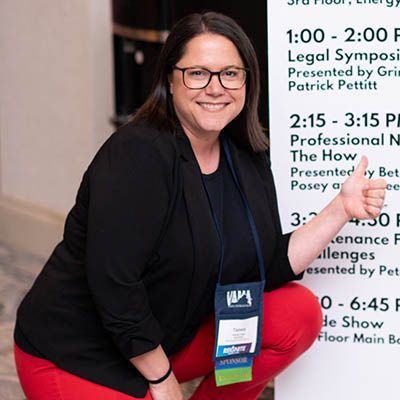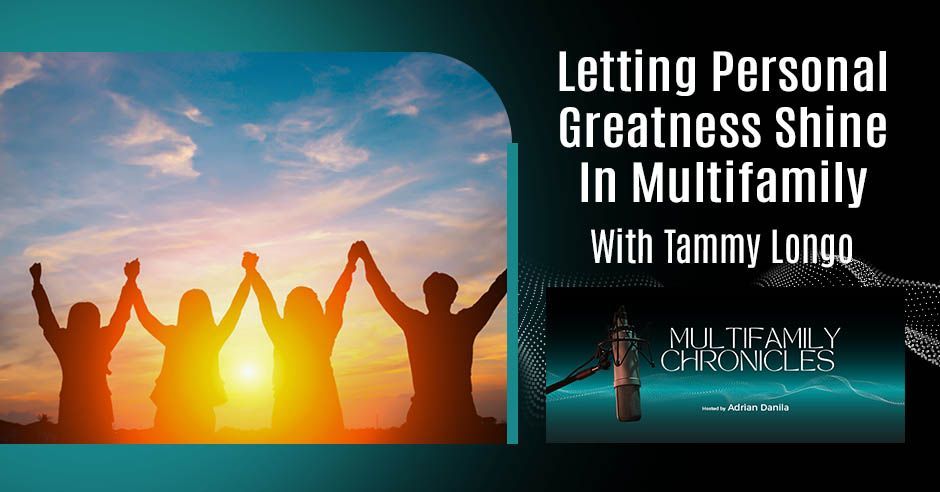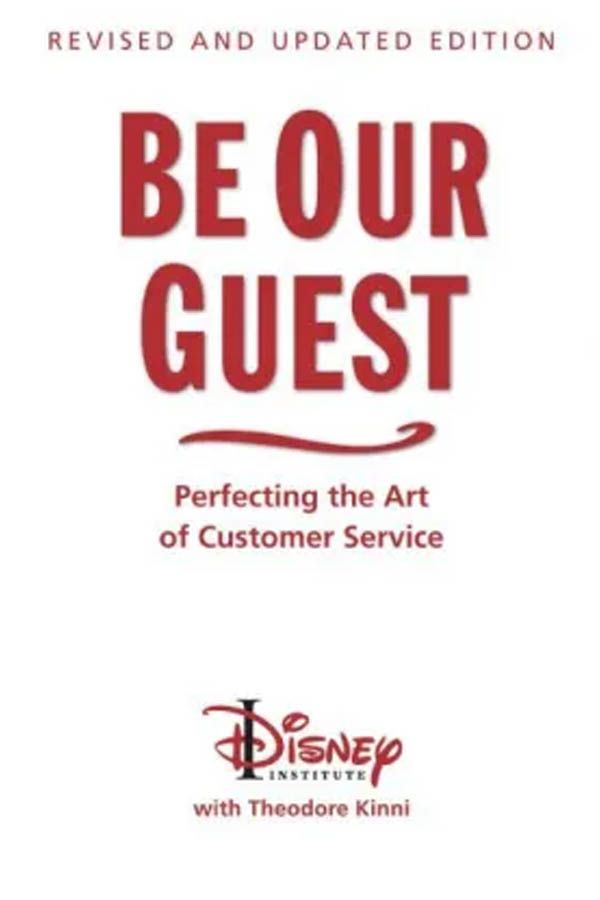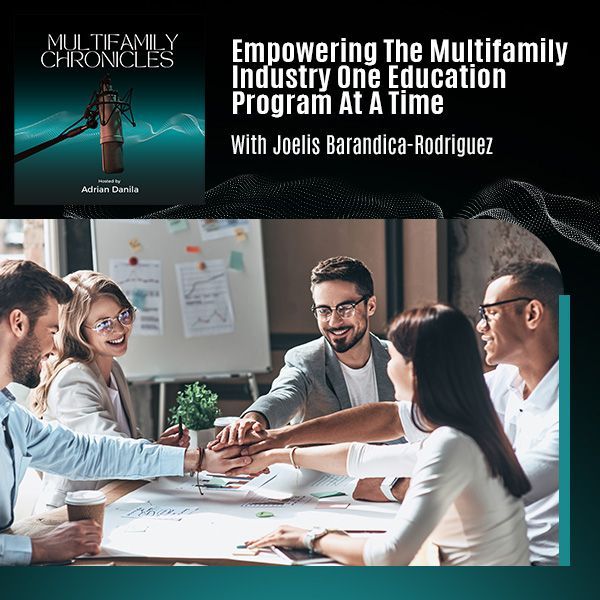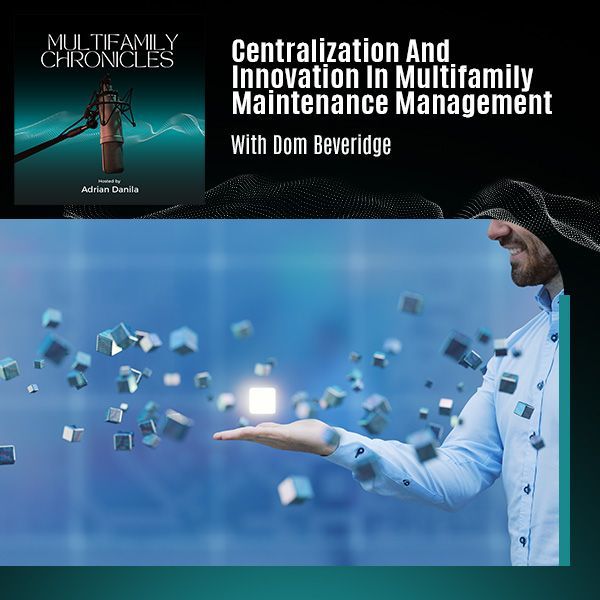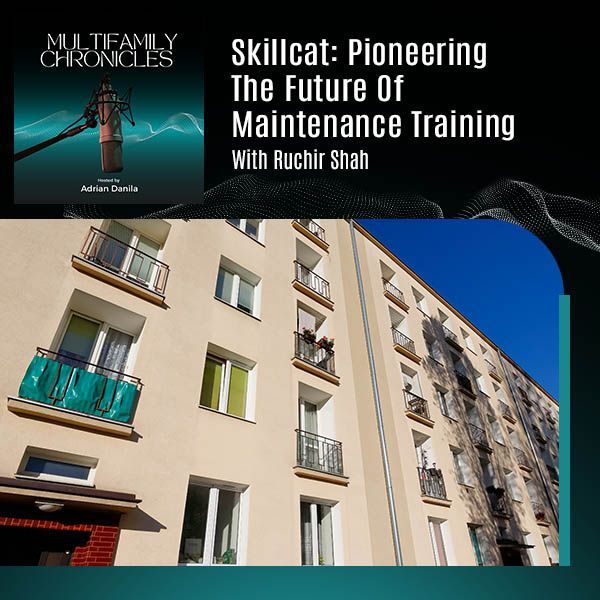Letting Personal Greatness Shine In Multifamily With Tammy Longo
Property management usually follows a set path that everyone should follow as they go up the ladder of leadership. Although this is a proven approach, it can sometimes limit them from unleashing their personal greatness. Most of their strengths are set aside and put into the dark. Adrian Danila talks with Tammy Longo, the Regional Sales Executive with ALN Apartment Data, to discuss how the right education can break this cycle. She shares her advocacy in guiding property managers in knowing the right positions and tasks to give to their team. This way, they can perform at their best and avoid dimming their brilliance. Tammy also talks about the importance of knowing your self-worth to claim the best opportunities where your greatness will not be boxed away.
---
Watch the episode here
Listen to the podcast here
Letting Personal Greatness Shine In Multifamily With Tammy Longo
My guest is Tammy Longo. Tammy is a Regional Sales Executive with ALN Apartment Data for the Northeast region. Welcome to the show, Tammy.
Thanks for having me. It's nice to see you again, Adrian.
Likewise. Tammy, let's start by introducing yourself to the audience. Tell us a little bit about your professional and personal background.
I started in multifamily in 2003. I know I'm ancient. I get it. I've been around for a long time and I love it. I have spent the majority of my career in owner-operator space, on properties, on sites, and moving through the ranks there. Now, I am on the supplier side and I am loving life, bright and shiny over here. That's my career in a nutshell. I've been everything from leasing to regional, marketing clients. I've done affordables. I dabbled in everything except student housing, and I'm very thankful for that.
Tell us a little bit about ALN. What's your role with the company? What do you do?
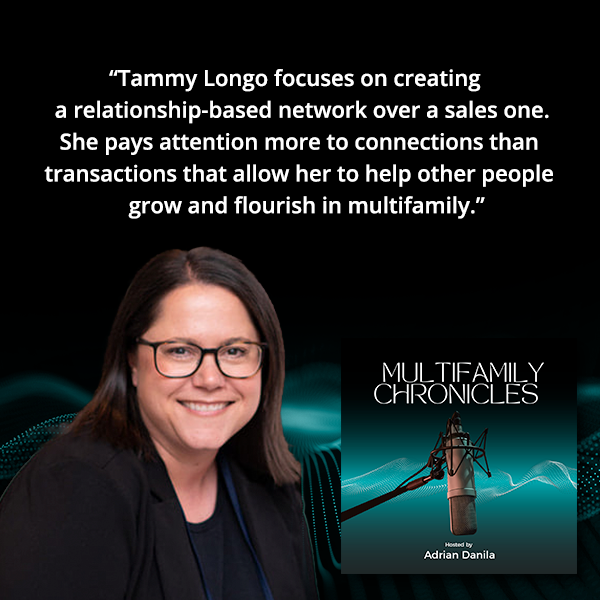
I am a Regional Sales Executive, and I handle the majority of the DMV area here in the Northeast, so I sell you data. Here at ALN, I like to consider us as helpers. We are the supplier partner that can help you make educated decisions about your properties. We are gathering this information nationwide, not just in large cities but in the tertiary market. If you want to build a property or you want to look for properties out in a small town in Idaho for potato farmers, we can help you. We got it. We have that all going on and we can also help our supplier partners.
What I do is I am always looking for people to help. I'm always at trade shows. I'm trying to get our name out there and making sure people know that we exist so that we can help you make those decisions, whether they are financial, amenity-driven, or new construction. Whatever you're looking for, we got it on our platform. Education about what we do and how we do it is a big part of my job.
I would like to ask you to share a few specific situations in which your company could help a property management company with data. The reason why I'm asking this is that I've seen more this often than anyone would like to admit. I've seen management companies making decisions based on feelings and based on one person's beliefs even though there's a lot of data right there to be harvested. We use the software. Property management-related software gives us a wealth of information.
For example, “Let's implement a new software program.” What I'm seeing from the executive side is that we decided to roll with this program. When I ask the question, “Why is this beneficial to the company?” The answer is copying the sales pitch by the salesperson from the vendor side. It could be very beneficial if it is a great program for you. What if it's not? You can't just base a multimillion-dollar decision on a sales pitch. You have to back your decision with data. Data doesn't typically lie. It tells a pretty good story. That's the reason why I want you to think about a couple of instances in which your company could help an executive make the right decision and educated decision.
I can do that on a couple of fronts. When you're talking about the people on-site, our market survey and data analytics are top-notch. We're to the penny on what people are charging or what their specials are. All of that data is in there. When you talk about running your market surveys on a weekly basis, how much time is your staff spending calling properties and trying to get that information? You mentioned having additional software. Our product isn't necessarily additional software.
It is something that you can just log into and the information is there. There's no integration that you need necessary, it's there for you. You log in, click that button, and run that comp market survey. You have everything you need for your phone call with your regional manager. If you're a regional, you have your whole portfolio. You can look at your whole portfolio and know exactly what's going on with the click of a button. That can save you a ton of time and money in and of itself.
If you're an owner-operator and you're looking to grow your portfolio, and you want to pick up some assets here or there, you can log into whatever city you're looking to grow in. You can track these maybe underperforming assets. You can look at these smaller properties that maybe don't have a management company. You can swoop in and say, “I can do this better. Give my company a chance.” To take it even further, you can look at the new construction reports and see what's going on in the area. You can dive right into that and see a lead list of new projects going on that don't have management companies. Boom, there you go. You're in on the ground for them.
I love this. I hope executives that don't know about your company are tuning in because there's a lot of value in it.
That's a very small portion. There's so much more that you can do in ways that you can slice and dice the data to make those educated decisions that we are talking about.
I know that you're very involved with the National Apartment Association. You're volunteering a lot of time for the cause of the apartment industry environment and space. Could you share with me and the audience a little bit about the initiatives that you are part of?
I love to talk about this. The reason is I am a product of this as well. We are an industry with people who fell into property management. Everyone has got a story. We love to talk about it like it's prison or something, “How did you get in? When did you start this?” It's interesting to me on that front. I feel like with NAA, we have this great opportunity to provide that education and advocacy for people who fell into our industry because they don't know. I didn't know.
I grew up in a tiny town in upstate New York, where we didn't have these large apartment communities. We rented half a house and a basement. I lived in the apartment above the bar where I worked at. We didn't have this. It's fascinating to me that when I fell into it, I was brought into these ranks and given that education.
The other part of that is advocacy. One thing that I would suggest to anyone to do if you have the means is to get to the Advocate Conference in DC. This is what opened my eyes to everything, how the sausage is made, how NAA runs, and how we can get involved. You can walk into any of these committee meetings. You can learn about your passions. You can find your passion there.

I was in affordable housing. I sit on the Affordable Housing Committee, NAAEI, which is education. I am on the NAA Gives committee. There's so much that you can learn about by going to these free meetings and diving into that. The flip side to that is learning how to do the advocacy part. The grassroots of it, if you can get involved on your local level, or you can get involved on the NAA level and storm the general assembly in January as we do here in Virginia. You learn about the issues that drive our industry, and that's so important.
Be able to provide education for the people that fell into our industry by teaching the NAAEI credentials. I'm going to AFT training for the week to learn how to do that better. I'm very excited about that. Also, the advocacy to learn about why we need education. It is a two-parter for me. If you can get to the Advocate Conference, which is a free conference in DC in March, sit in on some of these meetings, and try to find your why and find your passion, that's going to make you that much more interested in growing in our industry. When you have something to grow towards it, you're going to work harder.
I want to promote positive change within our industry too. I guess that's the other part of it. It’s learning the advocacy, being a part of the education to promote that positive change, and making sure that we're going in the right direction. We're notoriously slow adapters in multifamily. That's not necessarily a terrible thing, but we've got to understand how to adapt a little bit faster. We do that by learning about the issues.
People in multifamily are notoriously slow adapters. They must need to adapt a little faster by learning about the industry’s issues.
The thing is the world evolves and moves at a very fast pace, and technology is a catalyst for that. The reality is if we're not keeping up with it, we are going to be left behind.
A prime example of that in my brain is revenue management systems. A lot of places are operating on daily pricing. That's something that retail has picked up on decades ago. We're just coming around to it where people are realizing that there's a lot of money on the table there just by having these meetings on a weekly basis to adjust the pricing or adjust daily, and holds people to that for 72 hours to make a decision. You go to a store and something is on sale but the next day, it's not. What are you going to do? They're doing that. They've been doing that but we haven't, and now we are. Some things are evolving and we're getting there. We could be a little more forward on it, but we're getting there.
I like this because it's about the dynamic or the moving approach versus the static. If it takes you 2 or 3 days to decide on pricing, you're too late. By the time you make a decision, probably that decision is obsolete in a way that is not the right decision for the current market conditions.
That's another service at ALN that we also provide. You can log in at any time, click that button, see everyone's pricing, and adjust yours accordingly.
You've been in the industry for almost two decades.
Hit me where it hurts, Adrian.
I started in 2003 as you did. We start at about the same time.
It was a good year.
It was fantastic looking back. Looking back in retrospect, what are a few great things that you know our industry does? I would like you to also look with a critical eye, not necessarily in a bad way, at the things that you know the industry should not be doing or should be doing differently or do better than we do.
I have a standard answer to this. It is something that I'm finally starting to see a little bit of change on. It’s the path. We've got this God-given path in property management where you come in as a leasing person, and then you go to an assistant manager. You then go to a manager, and then you go to a regional, and then maybe you become a district manager. That's what we do to people. We put them on this path then we go, “Your next step is this. Your next step is that.”
We're not paying attention to their strengths enough. It's been something recently we're starting to create jobs and think about what people's strengths are. We can still do better and we're getting there. We’re taking someone who is this wonderful, bubbly, energetic, and pleasing person who loves to be around people who loves to talk about property, and who loves social media and being in front of the camera. Do you know what we do? We put their light out. We put them behind the desk and say, “Collect rent. That's your job now. You took that next step. Yay for you. You get to sit here and collect rent, and make sure that you do late notices.”
What's that doing to someone who has the fire and the passion to be a kind, energetic, bubbly, and forward-facing person? We're dimming their light. We're putting them on that path. We're putting them in that next chair, and it's not for them. That's what we're taught. That's what we've always been taught. From there, you would go to maybe being the manager. Maybe you get a little bit of that back dealing with people. Maybe you don't, then you go to regional, but that's not the path for everyone.
Everyone wants to make more money, but having these open conversations with people and saying, “You are such a fantastic leasing agent. I would hate to take that away from you. I don't think this next role is right for you. It's not because you are doing wrong, but your strength leads me to believe that you should be in this marketing path,” or whatever that looks like within your company.
If it's not within your company, let them know that. Say to people, “I see this bright light in you and I see that you can do something, and I don't have that position for you. I don't want to lose you. I don't want you to leave our industry. I don't want you to burn out. I don't want that light to go out in you.” Having those conversations with people is something that we have to do better at, rather than just put people on a ladder. It's not a knock. Those conversations are hard.
We like to call them ugly baby conversations where you’re like, “Don't say that. You don't say that to people.” We need to and it can be a positive conversation. If you don't get to retain that person, that's okay. Watch them grow. Plant that seed and see where they go. See what they do and own that. Say, “You know what? I did that. I had that conversation and they went and found their passion.” I cannot think of a better reward for myself than seeing someone grow and flourish in an industry that I love so much.” That would be my answer to that.
Honestly, it takes a bigger person to be the person to say that and look out for people in general.
It's hard because you have to have someone in that seat. We're so scared to not have a person in the chair. They're so scared to not have a butt in the chair that put people there because we need them. There are services that can get you a temporary person. There are people in your company that are willing to help, just don't put out people's light.
I'm going to go a step forward. I'm going to build a scenario. Let's say you know that this person has the talents. You don't have the job for them to harvest those talents to their fullest. You then give them advice and they move on. They leave your company and they excel and become great. Maybe 2 or 5 years later, they come back to your company in an executive role. How great would that be? We're looking at how things are done typically. You try to hold them down because you're scared, “If I’m going to replace them, what do they do?” You can't hold down greatness. You can't put it in a box. You can’t just own it. You don't own their greatness. They own it.
I love that, Adrian.
It's not only that. People that typically know their worth are not going to be around for too long, regardless of whether you wanted them to be or not. You’re trying to keep them and trying to hold onto them. It's not going to happen. I've seen many people throughout my career where I said, “This person is going to make it to the very top.” Sure enough, did. Sometimes they made it to the top of an organization. Sometimes they had to go somewhere else because there was something in the path. The next step was not there for them.
You can be selfish about it. You need to be selfish about it in a way that, “I'm going to see my own interest. Maybe if I could help this person now, they’re going to do a referral for me.” That’s for selfish reasons. If nothing else, you should be helping people. I'm hoping that people will not help other people for selfish reasons. That's my hope. I'm saying is even for a selfish reason, you should still do the right thing for people because you can't put greatness in a box and throw away the key. That's not going to happen.
You could tell that I'm very passionate about the path too. I came upon the maintenance side. On maintenance, we have a clear path. You start as a groundskeeper, become a punch tech, a tech, a service manager, and maybe a regional maintenance director. These are not the only possibilities that are out there. I see people that became CEO and president of the company. This person is a groundskeeper, picking up trash right there.
They overcame the fact that they don't have a formal education. This goes back to education, which I'm super passionate about education for the maintenance side. We don't have a program or we don't have a designation for service managers. We have certified apartment managers. The answer that I've gotten often was that we have this KMT leadership but it says, “Certified Apartment Technician.” Why don't you make a program specific to a manager that empowers that person that tells, "This is a manager. This is not a leadership technician.” What does that even mean?
I don't know the answer to that one but I'm absolutely with you. That's a trickle-down effect too. We're now relying on the management companies and your local associations to put together certified pool operators or to put together HVAC classes. We're teaching those skills at a higher level, a higher designation, a higher credential, or whatever you want to call it. There's a great opportunity there for keeping talent within our industry as well.
I'm talking about maintenance in particular. It’s educating them to understand the purpose of the business. If you're a maintenance person or part of a site team, how are you part of achieving the goals for that property from this level up? Do you understand what the goals are or what the owners are trying to do? Who told you? Have you ever been brought into a conversation?
Have you been explained that? If you don't take the time to explain to people what the high-level goals are, don't think that they want to understand. Create that language for them to understand. It's your job as a manager to create a language for them to understand. Once they understand, you have a chance to get their buy-in. If you don't even bother to start a conversation to try to explain or think that that's important, how could you expect that they all of a sudden get a buy-in?
You're taking that aspect and thinking about a turn tech or someone who did go in and they're doing this turn. They don't understand what that one extra day costs. They have no idea that pushing back that move-in date creates problems that are more than money. You're creating stress on people. Once you educate them and say, “This extra day, this extra hour, this extra half hour is going to cost this much money,” you're going to create someone who understands the goal. They are going to work harder to make it done because they're going to be passionate about not costing their property money and not setting their goals backward.
I'm an advocate for that.
You’ve touched on something else that I love too, and I've tried this a bunch of times. I've had some wonderful maintenance men and women along the way that I thought had the greatest personalities, and I wanted them in the office. I wanted to teach them how to lease. I wanted to teach them how to be assistant managers. I don't want people to ever be afraid of that. Sometimes it can work out wonderfully, and sometimes you get the people who go, “I'm not that guy or girl. I do belong on this side.” I can appreciate that.
I don't want to put someone in the wrong box like we were talking about, but don't be afraid to have those conversations and to approach people and say, “You have a great personality and I love the feedback that I get from our residents when you're in their apartment. Why don't we sit down and have a conversation about anything else that you could do within our company besides being a tech?” Whatever that looks like within your company. Don't be afraid of those conversations because there are some great people out there who can multitask.

I love for companies to embrace that. It's part of the cross-training too. Maybe they're not going to turn into a lease or a property manager, but at least they would better understand what the other side of the business it's up against. This goes the other way around too, where management and leasing get exposed to maintenance work. In real life, they should step out of the office and spend a couple of hours here and there with the tech to see what they're running into, the technical challenges, all the challenges that they have, and the way they approach the resident.
Let's say that a manager takes a couple of hours and runs with the tech while they're running work orders. They could use this not only to learn about maintenance because they will learn about maintenance and the technical side of things. They could also use this as an opportunity to maybe coach that particular employee on how to interact with the resident. We all know that we have many wonderful maintenance professionals that are great with their hands. When it comes to relating and being able to be relatable to people, they're not the type who just wants to be like, “I'm just here to do my job. Let me fix your stuff. Let me get out here.”
They go to the next thing. They're not into the conversation or into being too warm and fuzzy. How about a manager spending some time with their tech and seeing those opportunities? They have a follow-up conversation and say, “Let me take you to lunch. You did a wonderful job, but there are a few pointers or there are a few things that you could add to your existing skillset overall that will make you such a much better professional when it comes to maintenance from a customer service standpoint.” There's so much value in spending their time. Any time that you spend with your people comes back to you tenfold.
First of all, it makes them better. Second of all, you benefit from it. As an individual and as a manager, you and your company benefit from it. Don't take this for granted. People are looking at it like a one-way street, “Why should I spend my time with my techs? I don't have two hours to spend with my tech.”
Yes, you do.
Make time. I also learned that if someone doesn't want to do something, they'll find an excuse to say, “I didn't have time.” The reality is we don't own time. We have to make time for everything we do in life. We make time for our personal hobbies, for our job, and for getting things done. We don't own time. To say that you didn't have time is a sign that it is not on your top priority list. I guess that's okay, but it's not okay. Every time you invest in your people, the return on investment gets valuable.
I'll take it even a step further from the manager's perspective. You're spending that time with your maintenance team and learning about the things that they're running into. That's going to make it much easier for you to explain what's going on when you get those angry phone calls, or when you're doing a move-in with someone and there's a problem in the apartment. Maybe there's a chip in the countertop and it's visible. It's not the best fix, but understanding the why behind that too, and being able to explain it to your new move-in or the angry resident on the phone. It is going to make that situation that much easier to diffuse so that you're not getting bad reviews, and you're not getting that bad feedback.
It goes tenfold. You can keep going down that path with why you should be doing these things with your maintenance teams and your teams as a whole. If it comes back to financial issues, your maintenance team understands, “This countertop with that little patch doesn't look great but it's what we have to do now, and I will take the lead in explaining that to our new residents.”
Tammy, you spent most of your career on the management side in multifamily. Recently, you switched towards the vendor partner side. Having both perspectives, what would you say are a few things that the management side of the business could do better or differently to improve their relationship with the vendor partners?
The reason for me asking this question is in my personal opinion, I've seen over the years that vendors and vendor partners are one of the two most underserved categories of people in our industry, along with maintenance personnel. Maintenance and vendors are the two most underserved categories in the industry. With that being said, “What would you think the management side could do differently to improve this relationship?” It's a two-way street. Therefore, the management and the vendor side get to benefit, otherwise, there's no benefit.
My answer to this question is pretty simple. It's going to be kind and straight honesty. If you don't feel a need for my product right now, tell me. “It's not something that's in our wheelhouse right now. Maybe we can talk about it in the future.” The second step to that answer is, “Tell me what you do. Tell me what learn about my product.” Learn about what we do at ALN. You can call out a million vendors and learn about what it is they do. You're out there networking. You're out there talking to other owners, other managers, and other property managers. What if you hear a need from them? What if you hear a need that they have that I could help with?
We've talked before about that cyclical thing on the owner-manager side, but it goes for us too. Be honest with us, but learn about what we do and take that information out into your networking. It helps us grow our network. It's kindness. It's kind honesty. I learned that on the owner-manager side by being educated about my competitors, my comps, and the people around me. This goes back to another conversation that we were having earlier. I would always be educated enough to help someone that I couldn't help. I don't have the perfect department for you.
I have things I can't change on my property that you need, but guess what? There's someone down the street who can help you. They have that long hallway that you're looking for that I don't have. You put that out there. You give them everything. They go and then you get a call from that manager or you get a call from that vendor that says, “Thank you so much. Maybe we can meet up for coffee someday.”

You talked about the people coming back down the line. Maybe that person who needed the long haul isn't going to come back, but they're going to say, “This woman over here at this property or this person over here at this company was so kind to me that I'm going to tell you about their product and I'm going to tell you about their property.” It's the same thing. To me, it boils down to kind honesty. That's my pitch on that. We do it as vendors for each other. We do it as supplier partners for each other. You can help us do it for you too. If you're an owner, manager, or operator, and you're looking for something, a property, a place, or a product, we're going to spew it all to you. Do that for us as well.
I agree with you. There's so much more value in the type of approach of being kind and helpful versus being transactional. If I'm not going to get something out of this conversation, then I might as well not have the conversation. That it's a very finite game when you're talking about transactional versus the infinite game where you help people without expecting anything in return in general. In this situation, in particular, our vendor partners definitely could use more support from the management side. This is a great example.
In my humble opinion, we're going to be there for you. We're still going to support you in events. All that is going to continue, but it can be stronger and better with communication and education.
What advice would you have for a young person being ready to enter the workforce today?
My biggest thing is it’s a toughie especially if you're young, but to be as self-aware as humanly possible. You're going to have to be your advocate to say, “I don't need to take that next step that you're pointing me at.” I know what my strengths and weaknesses are. I am self-aware enough to know that I can't go from this position to that position. Being self-aware in using that knowledge to position you to get the career that you want out of property management is going to be the biggest thing that you can do for yourself.
Being self-aware in using your current position to get the career you want is the biggest thing you can do for yourself.
What type of new perspective do you think you bring to the vendor or partner side, coming from the management side?
You mentioned it before and it's a word that not a lot of people use, but you used it and I use it all the time and that's relatable. I can be relatable on just about any topic in the world, whether I like it or I don't like it. I'm a person first and foremost. I have places I like, things I like, stuff I like to talk about, and things I love. I want to talk about those things. I want to create relationships. I don't necessarily want to be that transactional person. I learned that on the owner-operator side by going through the ranks and everything like that.
I also learned it in retail. It's a skill. Being relatable and being able to walk up to a table when you're a waitress and notice one little thing about someone and say, “I like that clip in your hair.” Boom, you've got someone right there. We're not talking about specials. I'm not talking to you about mine. We're talking and we're creating a relationship. One thing that I want to be in pursuit of always is creating a relationship-based network over a sales network.
Relationship-based is something that could last forever. It brings you continuing business if you wish versus just that.
We talk about how transient property management is. We've been speaking of that. I want to create an impression with someone about me, my kindness, and my relatability. Sometimes maybe they even go, “I know she said this about our company, but I'm comfortable enough to give her a call or send her an email and learn more,” rather than, “She was pitching me in the elevator. I can't hear about ALN anymore.” That's not my goal.
That's not the way to go. Tammy, can you think of a situation when an apparent failure at the time set you up for future success, and share that with an audience?
I said this line before. I am a product of what I preach. My biggest failure was not being self-aware. I went on this path. I went to the regional role, and I was never meant for that. It's not in my personality. It's not my wheelhouse, and I shouldn't have been there. I did the jobs well, but I lost a little bit of my passion. I lost a little bit of myself because I was doing something that I knew in my heart wasn't for me. It took a long time to become self-aware and say, “I don't like this and I got to figure it out.”
Once I did that, I have now found myself in a place where a long time ago, I said, “I am a helper at my core. I always have been and look at where I am now. Look at what I get to do. I get to help everyone who wants anything to do with multifamily. I can help you.” It took me the failures and the internal struggles being in roles that I had to realize I'm here collecting this paycheck and I dislike what I'm doing.
That's not fair to me. That's not fair to you. While it might not necessarily be dubbed a failure, I was failing myself and I was failing my company because somebody else could have been in that role and could have done it better because they had a passion for it, whereas I was internally struggling. When you have that internal struggle, you're not your best self. Being put on that path did allow me to become the person that I am in the place that I am now. However, I would've enjoyed someone saying to me fifteen years ago, “Maybe this is it for you.”
Sometimes it takes us years or decades to learn. It could be learning ourselves.
That's a hard thing to do, to be honest with yourself about anything. Sometimes something comes along. Maybe it breaks your spirit enough to go, “I got to make a change.” That's what happened to me. I have found myself over the last year and a half now in the best position that I've ever been in multifamily and in my life. That's not necessarily just my job, but my personal space, my internal happiness, my core, and everything. I'm not saying everything is perfect all the time. It never is. It's about having that self-awareness to say, “I'm pretty close to the exact right spot to where I need to be.” It trickles down to everything.
It takes a lot to make that call. It's not our default state as human beings. You have to fight against your own nature or against your human nature. I'm excited and glad to hear that you found your passion. It seems like you're in the best spot that you have ever been to. I follow a very similar path. With searching, I’m in a great spot now myself. I'm very grateful for that. It's been a journey. The journey continues because we're living in a dynamic world.
It's not static. Where most pain is coming from for people is that they're looking at things in a static way like the world today. They expect that if they're in a great situation now, they expected that to last forever. They're not realizing that things are changing. You can't expect your situation to stay the same when everything around you is changing. You're changing yourself too, whether you're realizing it or not. You can't realistically expect that you keep the same great situation that you're in now. You have to adapt and overcome all the time.
When you stay static like you're saying, you also lose your relatability.
That's a very great observation, Tammy. The next question is about books. What do you like to read, fiction, not fiction, or business books? What would you recommend to the audience?
I'm in a little bit of a conundrum when it comes to that. I love to read a lot of customer service books. I'm currently reading the Be Our Guest, Disney Customer Service book. I'm a Disneyholic. The other favorites that I read over and over again are The Secret Garden, Alice in Wonderland and Alice in Wonderland, Through the Looking Glass, also The Lion, the Witch, and the Wardrobe.
I'm very down those paths. I love the Harry Potter movies. I have not subscribed to reading the books yet, even though I know them all because they're a little daunting for me. They are so big. I have my favorites, but customer service books and then my Disney fallbacks. I'm also a huge fan of reading plays, which I know is a little bit left field. I love to read a play. I can get into character. I love Broadway. That is a big thing for me. One of my favorites and the only Harry Potter book that I've read is The Cursed Child, which is a play. Those are my favorites, but the Disney Be Our Guest book is awesome. It's great. I do need to get the Ritz-Carlton book too. I need to read that one as well.
Tammy, in the past three years, what do you believe is the behavior or habit that has improved or changed your life the most?
My answer to this is going to be something that I learned more than three years ago, but have only recently implemented. That is the realization that it's okay to think. I learned this back at a Zillow conference a long time ago from Juliet Funt. She's a fantastic speaker. She had this line, “When was the last time you caught someone thinking where you worked? Someone staring at the wall. Someone writing something down that wasn't a proposal or a budget, but writing down a thought. We're so busy running and doing.”
She has this great bit where she portrays someone in an office who forgot they had to use the restroom. If we're so busy that we're not taking the time to use the restroom, where's the next great idea going to come from? Where is the next great step in multifamily going to come from if we're not taking five minutes to doodle or think about what we could do better? What suggestion can I make to make my company better, or to make my industry better, or something that I heard?
We were reading through tons of articles and great content out there that we have. We're reading it but are we thinking about it? Are we taking that 5 to 10 minutes every once in a while to write down a thought? I've recently started putting a notebook next to my bed. I'm close to putting one around other places at the house too because I have these random thoughts. We're running and do the next thing and we forget the thought. It's the most frustrating thing because you had this great idea and it's gone. You're not getting it back because it's gone.
The biggest thing that I have implemented in the last three years is thinking, finding my brain again, getting a little bit out of the chaos, and remembering that it's okay to sit for a second and write that thought down. Maybe a little bit later, I expand on that thought and now I've got a complete idea. I can take that to someone and I can maybe create that positive change that I want to see in our industry, so think.
That's a great message. Think. It's very simple but we seem to forget that.
I'm not saying to go home and sit and try to get that thought. When you have that thought, write it down. Do something with it, and take a minute to think about it. Take a minute to think about what you're reading instead of just reading it to read.
Tammy, when you feel stressed out when you feel overwhelmed, how do you get back on track? What type of technique or what do you do to get back on track?
Gangster rap. I'm just kidding. It's music though. I love music. Part one is music. I love it. I will blast something. I will have a ten-second dance party. Broadway gives me all the feels. I listen to a ton of Broadway and I take my frustrations and things going on in my life. I try to turn them into positive things. When I get angry that I’m going to cry or when I get angry that I need to smash my face into a pillow, what I do and something that has worked well for me outside of music is to look up to a happy homecoming.
When I have big feelings and I feel like I'm going to cry or I need to release that, I will look up for military homecomings, surprise pregnancy announcements, engagements, and things that make me happy, and then I cry happy tears. I then feel good and grateful. I'm not angry any more because I got myself out of that space.
I love to do that no matter if I'm down in the dumps or just having a moment. Sometimes even if I've had too much coffee and I can’t calm down, things like the undercover boss, where they're always giving everyone everything in the end, and those little clips of people helping people are things that make me happy, and sometimes things that make me cry those happy tears. I then move on from the anger that was there. Blasting out some Broadway music and singing to myself in my office, my car, and my kids' faces, which they love, or finding those little clips that make me feel grateful, empathetic, and happy about what's going on in that situation take me out of my situation.
That's great. I use music myself many times to get out of stressful situations and to get my mind off that situation. Tammy, in closing our conversation, is there anything that you wish we would've discussed or we would've touched on during this conversation that you don't have the chance? Is there anything that you want to tell the audience in closing about something that you are passionate about that we didn’t have the opportunity to cover?
I don't think so. The biggest thing that I want people to understand about multifamily is that there are so many options for you. Don't give up on us. We've got mentors. Go find them. Go find someone. Call me and find me on social media. I will help you. I will help you to keep you in our industry and find the right spot for you.
There are many other people out there that are willing to do the same thing. If I could impress anything on anyone, it's to find your passion, go to the meeting, and figure out what your purpose is or what it could be in multifamily. Find that mentor or that person, and stick with us because it's a solid industry with solid people. If you stick with us and give us the opportunity and use the resources in your network, you're going to make something of yourself.
Find a mentor who can guide you in your multifamily career. If you stick with it and use your resources in your network, you can make something of yourself.
I don't think of a better way to close this conversation. I do want to give you the opportunity also to share your contact information. How can our audience reach out to you if they want to get in contact with you?
My email is very simple, easy, and wonderful. It's Tammy@ALNData.com. You can also find me on all social media except TikTok. I haven't gotten a TikTok yet. I'm afraid of what I will do with a TikTok account and what rabbit holes I will go down there.
One more thing that I don't think I touched on a little bit is reading LinkedIn. Join the groups. Join the LinkedIn groups. Join the Facebook groups. Read about what's going on in our industry. You can find me on LinkedIn, Facebook, and Instagram. It’s just my name. Look me up anywhere. Check it out. I will help you.
Tammy, thank you so much for coming.
Thank you, Adrian.
I truly enjoy our conversation. I hope that we could do a part too later down the road.
I would love that. That would be great. I look forward to seeing you at other conferences and things. We're not that far apart. We'll likely be meeting up at some local association events. Maybe we'll run into each other's speaking event again too. That was great. It was a pleasure to meet you.
Likewise. I'm looking forward to it. Everybody, thank you very much for tuning in. I hope to see you back here soon. Have a great day.
Important Links
- ALN Apartment Data
- NAA
- Be Our Guest
- The Secret Garden
- Alice in Wonderland
- Alice in Wonderland and Through the Looking Glass
- The Lion, the Witch, and the Wardrobe
- The Cursed Child
- Juliet Funt
- Tammy@ALNData.com
- LinkedIn – Tammy Longo
- Facebook – Tammy Longo
- Instagram – Tammy Longo
About Tammy Longo
